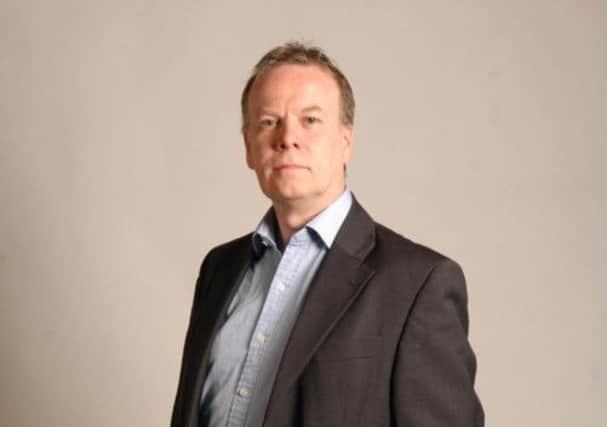Comment: Hiring former spy shows keen on clean-up


Sir Jonathan Evans’ appointment as a non-executive director is an admission by Britain’s biggest bank that it needs to clean up its act following a series of scandals, notably the charges against it over money laundering.
HSBC was fined $1.9 billion (£1.3bn) last year by the US authorities for failing to control the flow of money for terrorists and drug gangs.
Advertisement
Hide AdAdvertisement
Hide AdHiring a former director general of MI5 also reveals a need to tackle new forms of illegal activity, including the growing menace of cyber-crime. As someone who worked in the shadowy world of spooks, there has been some criticism that it merely confirms the banking industry’s desire to continue operating in a similar way.
That looks harsh, given the secretive and virtual nature of cyber-criminals whose unseen activities require the highest form of surveillance.
Apart from joining the main board, Evans joins HSBC’s Financial System Vulnerabilities Committee which examines any areas of exposure to financial crime. His 30 years’ experience at MI5, Britain’s domestic security service, culminating in his appointment as supremo for three years, will be shared with committee members including Jim Comey, a former US deputy attorney-general who knows about fighting drug barons, and Bill Hughes, who ran Britain’s Serious Organised Crime Agency.
Other banks have been hiring in a similar vein, though mainly from regulators rather than the security sector, but it does show a shift in attitudes to tackling misbehaviour and poor compliance. HSBC chief executive Stuart Gulliver has declared that he wants his bank to be at the forefront of fighting financial crime.
Cyber-crime is a hidden threat across the business world, targeting a range of mission critical assets, including intellectual property. But most companies still do not have sufficient safeguards in place to avoid losing critical corporate information.
A YouGov survey published last week noted that a majority of British businesses are failing to implement even basic security practice. More than 40 per cent had not conducted a risk assessment of the threats to their companies. Not many could afford to pay £125,000 that Evans will earn for 36 days’ work a year, but they should be showing the same determination to tackle a growing threat to their operations.
King era fell in and out of tune
Sir Mervyn King chairs his final meeting of the Bank of England’s monetary policy committee this week, probably regretting that, for most of his tenure as governor, the economy has, at best, flatlined and he has failed to keep inflation within its 2 per cent target.
But King has been criticised for talking down the economy – he would argue that he has to make an honest assessment – though he was more upbeat when delivering the latest inflation report.
Advertisement
Hide AdAdvertisement
Hide AdHe completes 21 years at the Bank and along the way the world has learned a new language of sub-prime mortgages, credit default swaps and quantitative easing. His time also coincided with the bank bail-outs, and history may show that he was slow to spot the dangers in 2007. Only recently has he shown an enthusiasm for more ways to stimulate growth.
He was keen to see the banks split their investment and retail banking business and time will also tell if the government’s response is the right one. In the end, he leapt to the defence of the banks, urging the public not to demonise them and admitting that the regulators were as much to blame for the financial crisis. To that extent he appeared to include himself.
King may make one last effort this week to push for more quantitative easing, but it is more likely his Canadian successor, Mark Carney, will oversee the next input of cash into the economy. Carney must also review the Funding for Lending Scheme, a joint Bank of England and Treasury initiative launched last August to pump cheap money into the banks to stimulate lending to businesses. The latest figures, showing lending has fallen sharply, suggest the scheme is not working.
Today King will make one of his last public appearances when he reveals his list of favourite songs on BBC Radio 4’s Desert Island Discs. So what will he choose? How about Money Makes The World Go Round from Cabaret, or perhaps You Can’t Always Get What You Want by the Rolling Stones?
Twitter: @TerryMurden1